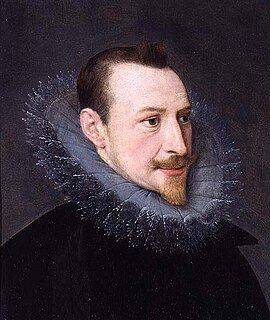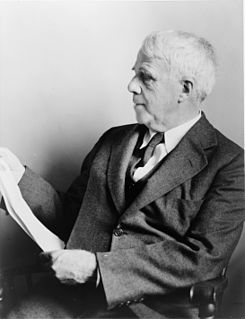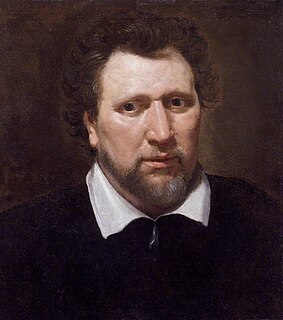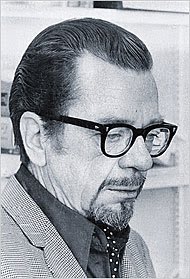Related Research Articles

Edmund Spenser was an English poet best known for The Faerie Queene, an epic poem and fantastical allegory celebrating the Tudor dynasty and Elizabeth I. He is recognized as one of the premier craftsmen of nascent Modern English verse and is often considered one of the greatest poets in the English language.

Robert Lee Frost was an American poet. His work was initially published in England before it was published in the United States. Known for his realistic depictions of rural life and his command of American colloquial speech, Frost frequently wrote about settings from rural life in New England in the early 20th century, using them to examine complex social and philosophical themes.

Sylvia Plath was an American poet, novelist, and short-story writer. She is credited with advancing the genre of confessional poetry and is best known for two of her published collections, The Colossus and Other Poems (1960) and Ariel (1965), as well as The Bell Jar, a semi-autobiographical novel published shortly before her death in 1963. The Collected Poems were published in 1981, which included previously unpublished works. For this collection Plath was awarded a Pulitzer Prize in Poetry in 1982, making her the fourth to receive this honour posthumously.

Wystan Hugh Auden was a British-American poet. Auden's poetry was noted for its stylistic and technical achievement, its engagement with politics, morals, love, and religion, and its variety in tone, form, and content. Some of his best known poems are about love, such as "Funeral Blues"; on political and social themes, such as "September 1, 1939" and "The Shield of Achilles"; on cultural and psychological themes, such as The Age of Anxiety; and on religious themes such as "For the Time Being" and "Horae Canonicae".

Benjamin Jonson was an English playwright and poet. Jonson's artistry exerted a lasting influence upon English poetry and stage comedy. He popularised the comedy of humours; he is best known for the satirical plays Every Man in His Humour (1598), Volpone, or The Fox, The Alchemist (1610) and Bartholomew Fair (1614) and for his lyric and epigrammatic poetry. "He is generally regarded as the second most important English dramatist, after William Shakespeare, during the reign of James I."

Simon Robert Armitage is an English poet, playwright and novelist who was appointed Poet Laureate on 10 May 2019. He is professor of poetry at the University of Leeds and succeeded Geoffrey Hill as Oxford Professor of Poetry when he was elected to the four-year part-time appointment from 2015 to 2019.

Sir William Davenant, also spelled D'Avenant, was an English poet and playwright. Along with Thomas Killigrew, Davenant was one of the rare figures in English Renaissance theatre whose career spanned both the Caroline and Restoration eras and who was active both before and after the English Civil War and during the Interregnum.

Robert Herrick was a 17th-century English lyric poet and Anglican cleric. He is best known for Hesperides, a book of poems. This includes the carpe diem poem "To the Virgins, to Make Much of Time", with the first line "Gather ye rosebuds while ye may".

George Chapman was an English dramatist, translator and poet. He was a classical scholar whose work shows the influence of Stoicism. Chapman has been speculated to be the Rival Poet of Shakespeare's sonnets by William Minto, and as an anticipator of the metaphysical poets of the 17th century. Chapman is best remembered for his translations of Homer's Iliad and Odyssey, and the Homeric Batrachomyomachia.
Thomas Randolph was an English poet and dramatist, recognised by his mentor Ben Jonson as being a promising writer of comedy, and amongst his contemporaries had a reputation as a wit.

William Drummond, called "of Hawthornden", was a Scottish poet.
Thomson William "Thom" Gunn, was an English poet who was praised for his early verses in England, where he was associated with The Movement, and his later poetry in America, even after moving towards a looser, free-verse style. After relocating from England to San Francisco, Gunn wrote about gay-related topics—particularly in his most famous work, The Man With Night Sweats in 1992—as well as drug use, sex and his bohemian lifestyle. He won major literary awards; his best poems were said to have a compact philosophical elegance.
Sons of Ben were followers of Ben Jonson in English poetry and drama in the first half of the seventeenth century. These men followed Ben Jonson's philosophy and his style of poetry. Unlike Jonson, they were loyal to the king.
Poetaster, like rhymester or versifier, is a derogatory term applied to bad or inferior poets. Specifically, poetaster has implications of unwarranted pretensions to artistic value. The word was coined in Latin by Erasmus in 1521. It was first used in English by Ben Jonson in his 1600 play Cynthia's Revels; immediately afterwards Jonson chose it as the title of his 1601 play Poetaster. In that play the "poetaster" character is a satire on John Marston, one of Jonson's rivals in the Poetomachia or War of the Theatres.

Thomas Thorpe was an English publisher, most famous for publishing Shakespeare's sonnets and several works by Christopher Marlowe and Ben Jonson. His publication of the sonnets has long been controversial. Nineteenth-century critics thought that he might have published the poems without Shakespeare's consent; Sidney Lee called him "predatory and irresponsible." Conversely, modern scholars Wells and Taylor assert their verdict that "Thorpe was a reputable publisher, and there is nothing intrinsically irregular about his publication."
Thomas May was an English poet, dramatist and historian of the Renaissance era.

John Edward Williams was an American author, editor and professor. He was best known for his novels Butcher's Crossing (1960), Stoner (1965), and Augustus (1972), which won a U.S. National Book Award.
Nationality words link to articles with information on the nation's poetry or literature.
Clement Paman (d.1664) was an English poet and clergyman of the 17th century sometimes associated with the Cavalier Poets in the tradition of Ben Jonson and Thomas Carew. He was described in 1994 as "perhaps the most talented poet of the seventeenth century never to have had a poem published over his name."

Algernon Charles Swinburne was an English poet, playwright, novelist, and critic. He wrote several novels and collections of poetry such as Poems and Ballads, and contributed to the famous Eleventh Edition of the Encyclopædia Britannica.
References
- ↑ "New York University's database of prose, poetry, film, video and art". New York University. Archived from the original on 3 September 2006. Retrieved 28 January 2019.
- ↑ "New York University's database of literature, arts, and medicine". New York University. Retrieved 28 January 2019.